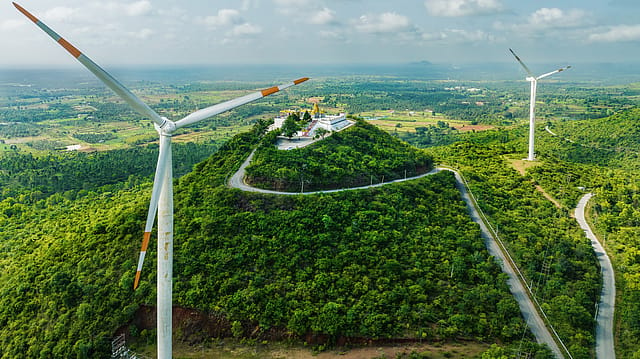Renewable energy now 44% of India's power capacity
ADVERTISEMENT

India has got a step closer to its goal of 50 per cent power generation capacity from non-fossil fuel sources by 2030. The share of renewables in the country's power capacity mix has reached 44.2% by the end of the second quarter of calendar year 2024. Renewable energy capacity during the same period a year ago was 38.4%.
India's total renewable energy capacity has reached 196.4 gigawatts (GW) at the end of June 2024. The total installed capacity of conventional power sources has now come down to 251.2 GW or 56.1%, according to data from the Central Electricity Authority (CEA).
Until a few years ago, India was dependent on fossil fuels like coal, lignite and gas for over 70% of its power requirements. Still, coal is the predominant fuel with 211 GW of installed capacity, contributing 47.1% of fuel mix.
Solar power now has a 19.4% share in India's total fuel mix, which was 15.9% during Q2 of 2023. Large hydro projects accounted for 10.5% and wind energy has 10.4% of India's total installed power capacity as of June end. Among other renewables, biomass accounts for 2.3% and small hydro accounts for 1.1%. Nuclear energy also contributes 1.8% of the total fuel mix.
Among other fossil fuels, the natural gas share is 5.5%, lignite 1.5% and diesel 0.13% of the total installed capacity.
To further fuel renewables, the Government is now planning to tap pumped hydro projects and BESS, utility-scale battery energy storage systems in the coming years.